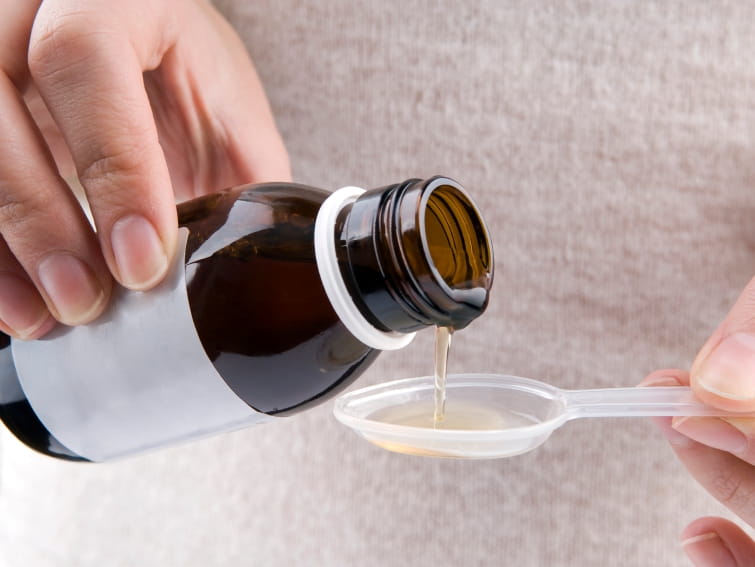Cough and Cold Medicine Safety Not for Children under Two

The Bottom Line
Home remedies such as saline drops, gentle suctioning, humidity, and fluids are more effective than medicines for young children with coughs and colds. If home remedies don't work, consult the child's health care provider.

The Full Story
The U.S. Food and Drug Administration (FDA) recommends that children under two years of age should NOT be given cough and cold medicines. Many manufacturers of over-the-counter (OTC) drugs have removed these preparations from sale.
The FDA noted that serious side effects can occur when children under two are given these drugs and that these risks outweigh any potential benefits. The FDA review continues for children older than two.
Cough and cold medicines often contain a number of ingredients, all of which can be dangerous for a child who gets too much. An overdose of acetaminophen, used for pain and fever, can cause liver damage. Overdoses of decongestants and antihistamines, intended to dry up a runny nose, can cause seizures.
To protect your children, follow these safety tips:
- Do NOT give cough and cold medicines to children under the age of two. Check with your health care provider for remedies for specific symptoms.
- If you give cough and cold medicines to older children, follow the label directions EXACTLY.
- Use medicines to treat your child's symptoms. Multi-symptom medicines may not be right for your child's illness.
- Follow dosing instructions for your child's age and weight.
- Measure doses with the correct measuring cup, spoon, or syringe. Do not use ordinary household spoons and cups.
- Be sure that only one person gives each dose. It's easy to double-dose if parents and caregivers don't check with each other.
- If you plan to use more than one medicine, compare labels carefully. You could give a drug overdose if you give two medicines with the same ingredient.
- After you give each dose, replace the child-resistant closure. Lock the medicine up high, where children can't see it or reach it.
Use the webPOISONCONTROL® online tool for guidance or call Poison Control right away if you think you've given an overdose or if a child gets into a medicine. The 24-hour number is 1-800-222-1222. Poison Control will tell you exactly what to do.
Rose Ann Gould Soloway, RN, BSN, MSEd, DABAT emerita
Clinical Toxicologist
Poisoned?
Call 1-800-222-1222 or
Prevention Tips
Do NOT give cough or cold medicines to children under two years old, unless recommended by the child's health care provider.
This Really Happened
A 6-month-old girl was found dead in her bed. Although she had pneumonia, she died because of an overdose of cough and cold medicines, specifically the decongestant pseudoephedrine and the cough suppressant dextromethorphan. (She also had acetaminophen in her system, although this did not cause her death.) She had been prescribed a medication containing pseudoephedrine, the antihistamine carbinoxamine, and dextromethorphan. She also was given an over-the-counter medicine containing pseudoephedrine and acetaminophen.
Centers for Disease Control and Prevention. Infant deaths associated with cough and cold medications: two states, 2005. MMWR Morb Mortal Wkly Rep. 2007;56(1):1–4.
For More Information
Advice for treating colds in children (AAP)References
Poisoned?
Call 1-800-222-1222 or
Prevention Tips
Do NOT give cough or cold medicines to children under two years old, unless recommended by the child's health care provider.
This Really Happened
A 6-month-old girl was found dead in her bed. Although she had pneumonia, she died because of an overdose of cough and cold medicines, specifically the decongestant pseudoephedrine and the cough suppressant dextromethorphan. (She also had acetaminophen in her system, although this did not cause her death.) She had been prescribed a medication containing pseudoephedrine, the antihistamine carbinoxamine, and dextromethorphan. She also was given an over-the-counter medicine containing pseudoephedrine and acetaminophen.
Centers for Disease Control and Prevention. Infant deaths associated with cough and cold medications: two states, 2005. MMWR Morb Mortal Wkly Rep. 2007;56(1):1–4.
